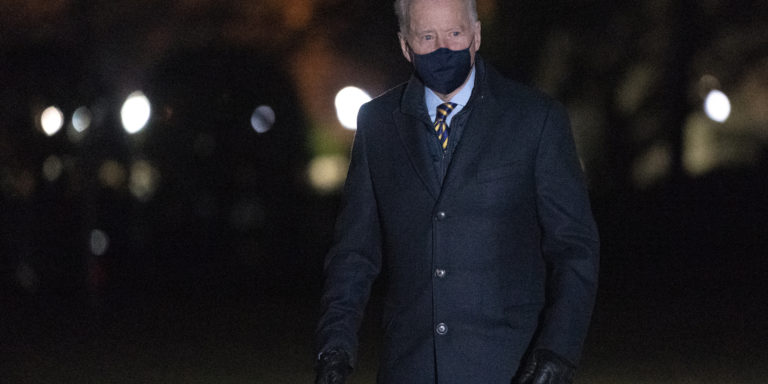INTELBRIEF
February 23, 2021
IntelBrief: Biden Moves Forward on Iran Nuclear Agreement?

Bottom Line up Front
- The Biden Administration has formally agreed to a diplomatic process to revive U.S. participation in the 2015 multilateral Iran nuclear agreement.
- The US Administration’s stance overrules those pushing for a new agreement addressing a broader range of objectionable Iranian behavior.
- The US announced a few confidence-building measures to demonstrate Washington’s willingness to resume adhering to the accord.
- Still defiant but reeling from the economic pressure of U.S. sanctions, Iranian leaders will likely eventually welcome the diplomatic overtures.
In discussions with European and other world leaders on February 18-19, President Biden and his foreign policy team formally welcomed the start of a diplomatic process to rejoin the 2015 multilateral Iran nuclear deal that the Trump administration exited in May 2018. The State Department announced that the United States “would accept an invitation from the European Union High Representative to attend a meeting of the P5+1 [all the original parties to the agreement: the United States, United Kingdom, France, Germany, Russia, and China] and Iran to discuss a diplomatic way forward on Iran's nuclear program." If the proposed meeting is held, the Biden administration would presumably be represented by its newly appointed Iran Envoy, Rob Malley.
The US Administration’s statements represented the first clear indication since President Biden took office that the United States would re-enter the existing agreement rather than press for a new accord that addresses a broad range of Iranian behavior. Several national security experts, and many in the U.S Congress, including some Democrats, had opposed the 2015 deal for excluding binding limitations on Iran’s development of ballistic missiles and, perhaps even more significantly, its support for armed factions and proxies in the region. These critics had called on President Biden to use the economic leverage provided by the Trump administration’s “maximum pressure” strategy to try to compel Iran to include concessions on these issues in a revised agreement. The decision to move forward appeared to reflect two conclusions reached by the Biden team. First, that Iran would likely implement its threats to further violate the terms of the accord unless the United States rejoined the deal. Second, Tehran would not accede to any U.S. demands to include limitation on its missile program and its regional operations in a revised agreement. The Administration maintains that broader issues can be addressed in “follow-on” negotiations after the original agreement is restored to full implementation by all parties.
Yet, the diplomatic pathway to a full restoration of the Joint Comprehensive Plan of Action (JCPOA) will be arduous. Iran did not immediately accept the meeting, instead repeating long-held positions that the United States must lift economic sanctions before Iran would come back into compliance. Iran’s Foreign Minister Mohammad Javad Zarif reiterated that, in line with legislation enacted by Iran’s parliament in December, Iran would begin limiting International Atomic Energy Agency (IAEA) access to its nuclear facilities beginning February 23. The Iranian statements appeared to ignore a February 18 joint statement of the United States and the three European countries in the nuclear agreement (United Kingdom, France, and Germany) urging Iran not to “take any [threatened] additional steps...to limit IAEA access [to Iran’s nuclear facilities…and to] consider the consequences of such grave action, particularly at this time of renewed diplomatic opportunity.” It might consequently be difficult for U.S. officials to find a formula to satisfy Iran that a future U.S. administration could not once again decide to abrogate the accord even if Iran is fully complying. This level of uncertainty is likely to affect a number of international relationships, as traditional allies were often sidelined by the Trump administration in favor of seemingly warmer ties with authoritarian leaders.
Yet, European and other observers assessed that Iran would likely eventually agree to resuming diplomacy, and to a restoration of the agreement. U.S. sanctions have unquestionably put pressure on Iran’s economy. Iranian leaders undoubtedly recognize that rebuffing the Biden administration’s attempts to come back into the pact would further them internationally. Iran’s Supreme Leader Ali Khamene’i has issued pronouncements supporting an Iranian return to compliance with the nuclear restrictions of the deal if the United States resumes implementing the agreement, including the lifting of sanctions. Iranian leaders continue to assert that all of Iran’s violations of the accord are “reversible.”
Concurrent with its offers of diplomacy, the Biden administration undertook a few confidence-building measures to try to overcome Iran’s distrust and persuade it to attend the proposed talks, though none of which eased any U.S. economic sanctions. The State Department lifted the additional travel restrictions on Iranian diplomats serving on U.S. territory (mainly at the Iran Mission to the United Nations in New York), imposed by the Trump administration. And, the United States formally rescinded the September 2020 Trump administration assertion that all U.N. sanctions were back in effect due to Iranian breaches of the agreement. The latter measure is largely symbolic because the other members of the United Nations Security Council, including close allies like the UK and France, opposed the U.S. “sanctions snap back” assertion. The snap back issue and other possible confidence building measures, both U.S. and Iranian, as well as the possible pathways for U.S.-Iran diplomacy, are analyzed in The Soufan Center report: “A Way Forward With Iran? Options for Crafting a U.S. Strategy,” released early on February 18.